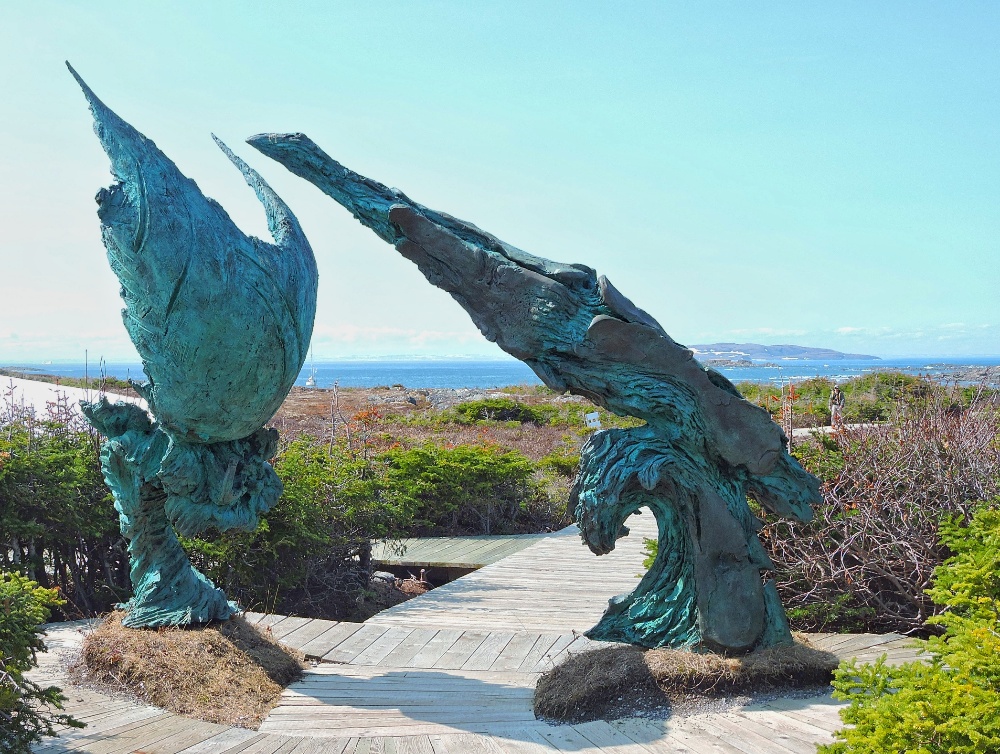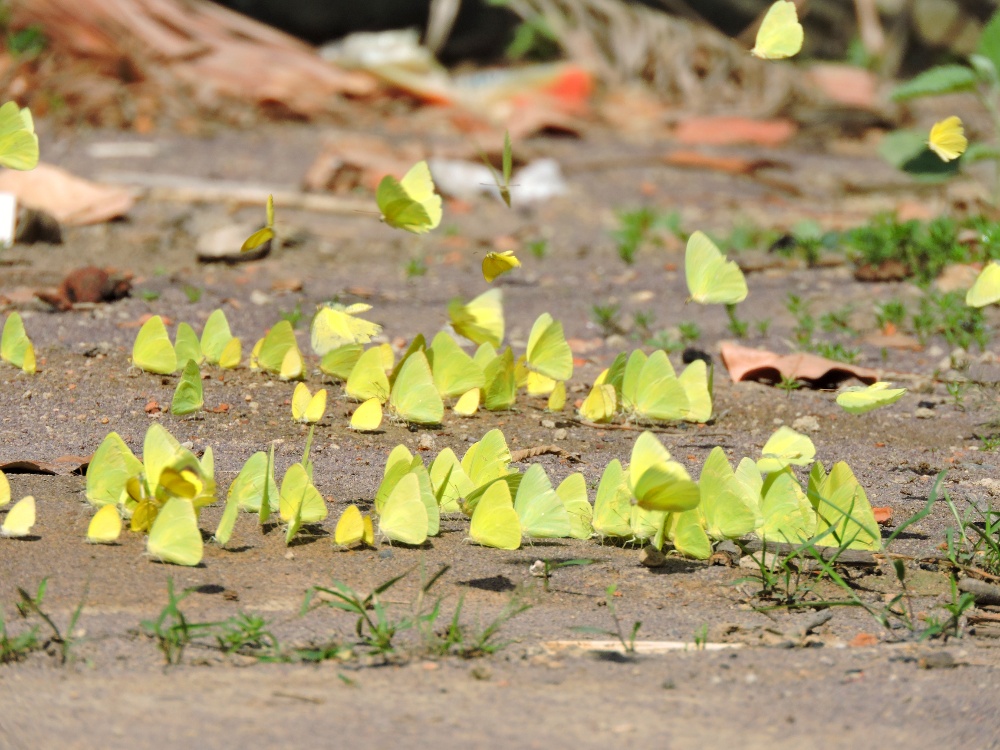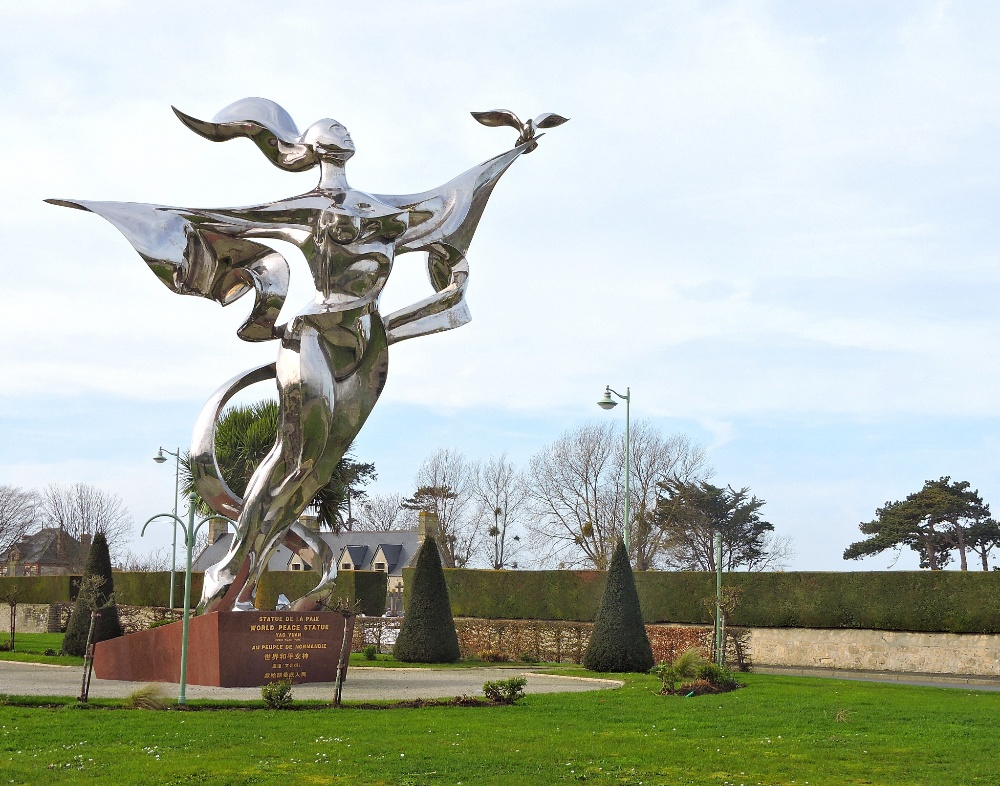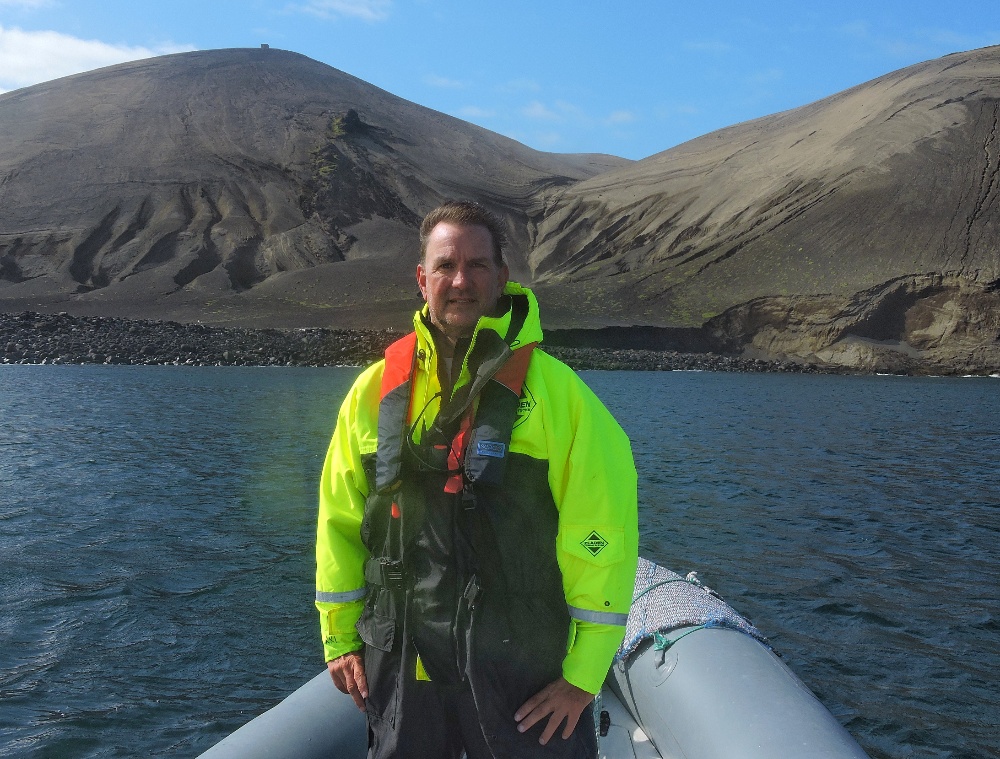In the realm of human behavior, it has become increasingly apparent to me that individuals eventually find a way to spend the majority their time on activities that best match their talents, skills, and their inherent personalities and worldviews. Whether that happens intentionally, or by the fall of circumstances, is more difficult to determine. In my case, the avocation that occupied a significant fraction of the days that I have existed on our planet was a definite example of chance and happenstance intervening to form the perfect match. My first bicycle tour began nearly thirty years ago, and at that time, suddenly finding myself with several months of free time to fill, my decision to attempt that endeavor was largely made on a whim. That was not a particularly long tour, only following a route of around seven thousand kilometers in North America, extending from Massachusetts to California. At the time, of course, I was a total novice, and, moreover, I didn’t even realize that people actually did that sort of thing. Nevertheless, by the time I was perhaps two-thirds of the way along that path, my mind was frequently occupied with thoughts of more extensive journeys.
Some of the aspects of typical bicycle tours are blatantly obvious matches for my personal characteristics. An appreciation for the natural world, a love of learning new things and seeing new places, and an ability to happily spend hours alone, or in very small groups, are all factors that fit perfectly with the implicit nature of traversing long distances using humanity’s greatest invention. Much later, I also learned that I possess the genetic markers that identify a person as possessing predominantly slow-twitch muscles, a common trait for people who do well at endurance activities. My slightly-above-average height and weight meant that I would likely never have succeeded in any competitive versions of such activities, but that was fine with me, since I don’t have a competitive bone in my body. Thankfully, up to this point, no one has devised a way to stage a competitive bicycle tour, at least not for a Grand Tour, and that suits me just fine. Additionally, there is one other circumstance implicit in a long tour that fits my sensibilities perfectly, though, once again, I didn’t realize that until much later.

Several years ago, I began reading a small book written by a philosopher named James P. Carse. I must admit that I actually didn’t finish reading that book, as its text soon veered too far in the direction of philosophical jargon. That was of little consequence, however, as the thesis of the book was clearly and effectively explained in its first chapter. The book is titled Finite and Infinite Games, and it’s main idea drastically affected the way I see the world. That principle idea is that there are two general types of games that humans partake in, and the type that comes to mind most frequently when people think of games are Finite Games. In a Finite Game, there are rules and procedures that must be followed. Games are often played between two or more competitors, and continue until a certain number of points or milestones are achieved, a race has been completed, or one competitor has been judged to be superior at the end of a fixed period of time. The goal of all the players in a Finite Game is to defeat the other players, to be victorious, to win
the game.
Not surprisingly, the other alternative, the Infinite Game, has essentially the opposite characteristics. An Infinite Game can be played with others, or alone, and there may be general guidelines, but not necessarily any strict rules. An Infinite Game has no clock, and keeping score is distinctly optional. Simply put, the primary goal of an Infinite Game is to prolong the play indefinitely. The reward for playing an Infinite Game is to continue to experience the joy of playing.
When I first read that idea, I realized that Infinite Games were the type of games that were always meant for me. I also understood that my earliest bicycle tours were most definitely Infinite Games. Indeed, a bicycle tour, especially a very long tour, is a perfect example of that type of game. There will always be new places to see, new people to meet, and continuous stories to tell, and continuing the game is the proper way to have those experiences. Additionally, the physical aspect of the activity, as I have mentioned in the previous post, compels one to perform consistently, to better keep the game in play, which benefits the player in more ways than one. Although I said above that long tours are, by design, non-competitive, that is not entirely accurate. There is a form of competition involved in a long tour, but not between the player any other humans who might be playing. In an Infinite Game, the other competitor is the Universe, itself, which has a way of creating continuous obstacles, seemingly designed to end the game. During a tour, these may be relatively ordinary things; inclement weather, exceedingly rough terrain, unreliable equipment. Those are just the basics, of course, and the Universe has the ability to be significantly more menacing, should it choose to, by, for example, unleashing a hitherto unknown airborne virus, or creating conditions that cause a player to slam head-first into a cement barrier. However, the proper way to play an Infinite Game is to be resilient, to overcome those obstacles, to experience joy by continuing the game. Once I learned what Infinite Games are, and came to realize that they are a built-in part of my personality, it was essentially a foregone conclusion that I would one day undertake a bicycling Grand Tour. And then a second one.

When I eventually committed to doing the World2 Tour, one of the topics that occupied my mind most frequently was exactly how my two Grand Tours, their start dates separated by fourteen years, would compare to each other. It won’t come as a surprise to anyone that the strange events of the previous two years essentially made any comparison of those two events virtually meaningless. However, there was one important aspect that can be held up for scrutiny, namely my state of mind when each of the two Tours began. On the first day of the Tour of Gondwana, my mood was dominated by thoughts of exciting new experiences, seeing places yet to be explored by me, and of learning about some of our fascinating shared history. Indeed when that extensive Tour was completed, my sense of awe and amazement had noticeably increased. In contrast, when the start of the World2 Tour finally arrived, I could only honestly describe myself as a misanthrope.
Don’t take that too personally. I have always sought to recognize the good qualities in everyone that I meet, indeed, out of the many thousands of people I encountered on the two Tours, the number of individuals whom I might consider to be unworthy of respect could probably be counted on the fingers of my two hands, perhaps with a few digits to spare. No, it is our species’ apparent inability to comprehend and understand what we have learned about ourselves and the World around us, and to put that knowledge into beneficial practice, that has led to my general misanthropic perspective. I could have conceivably bypassed doing the second Tour, but thoughts nagged at my consciousness that made me feel that many of the places and things that inspired me the most might not exist on our planet for much longer, and that I may never have had another opportunity to see them. Those include some of our most cherished Heritage Sites, and a depressing number of the most amazing Birds. My goodness, the birds!
Consider the following partial list of major events that occurred during the three years of the World2 Tour:
It’s probably true that if any three-year period from the last several centuries was randomly selected, an equally grim list could likely be created. However, the difference this time arises from the fact that an increasing number of events such as these can be classified as resulting from
- Record-setting wildfires affect large areas of Australia, California, and other places,
- Greenland experiences the largest summer ice loss on record,
- A huge abandoned stock of chemicals used for making fertilizer explodes, destroying a large part of the city of Beirut,
- Continuing, violent encounters between Police and citizens in the USA spark riots, and protests that spread globally,
- A new virus emerges and spreads globally, killing millions, with almost no effective globally-coordinated efforts to deal with the situation rationally,
- Finally, as the Tour drew to a close, one man personally decided to destroy one of the most pleasant countries visited along the way.
systemiccauses, a term which briefly became fashionable during the Tour, only to soon fade away just as quickly.

I consider myself to be a Systems thinker, in that, it is usually clear to me that the proper course of action to deal with any perceived problem is to address the issues inherent in the relevant system that created the problem in the first place, as opposed to trying to mitigate its effects. This would be akin to curing the disease as opposed to treating its symptoms. From those feelings arose my current dissatisfaction with the civilization that some of us are so impressed by. Essentially anyone who has rationally examined the state of affairs in our World during the last several decades has likely reached the same inescapable conclusions regarding our future prospects. However, we have so far proven to be utterly incapable of making the necessary changes to our society.
One occurrence from the Tour illustrates that quite effectively. In 2020, when travel restrictions forced me to abandon my ideals and start using air travel more often, my first flight was from Kyiv to Istanbul. On approach to the Turkish airport, I was presented with one of those surreal sights, so common at the time, of dozens of jet aircraft neatly parked, as tightly as possible, on an unused taxiway. I should have taken a photo of that scene to include here, but I was too obedient, and kept all my belongings stowed under the seat in front of me, as instructed. I mention this because that time period represented a perfect opportunity for us to use that pause to reconsider the role that aviation would play in our society going forward, and its future scale. Effectively reorganizing that industry to have a lighter footprint would result in a significant and permanent reduction in fuel use and carbon dioxide emissions, both of which will be necessary adjustments. Of course, the system we have created for ourselves fundamentally prevents anything of the sort from ever taking place, and so, as soon as the crisis began to ease, the airline industry, supported by society as a whole, made every effort to get back to normal
as quickly as possible, dragging me along with it, kicking and screaming.
The conclusion that thoughtful people must have reached by this point is decidedly straightforward—we need an entirely new societal and economic system going forward. The details of that will likely be complicated, but the underlying foundation can certainly be more simple. At the moment, we try to win
by having the largest economy. We try to win
by passing the cost of our actions forward onto our descendants. We try to win
by locking airborne viruses out of our local territory. We try to win
by modifying nature to suit our preferences. We try to win
by expanding our political unit using organized violence. These are all hallmarks of a societal system crafted by people who embrace the concept of Finite Games. To them, I say: You have had your chance, and look where it has brought us—to a World balancing precariously on the edge of an abyss!
It’s time to give the other option it’s due chance, to create a World that will be based on an Infinite Game. To live in a society that's primary goal is to continue the game of life. To experience joy by simply playing.

Right at the start of my Tour, it became a tradition of mine to select one version of the World2 Tour theme song, the old American spiritual Wayfaring Stranger, to represent each major section of the Tour. Once things started getting crazy, it became a little more challenging to do that, however, I have been generally pleased with my choices. Now, the time has come to include the version chosen to symbolize the entire Tour, and so I now present the final selection, performed by the trio, City of Enoch. Admittedly, as a non-spiritual person, this version may get a little hyper-devotional for me, but I really like the image of walking out over the Bonneville Salt Flats, which I feel symbolizes a long tour very nicely.
In addition to the imagery, the lyrics of this song match the qualities of a long tour perfectly, especially the World2 Tour. Of course, the words Wayfaring Stranger
themselves match exquisitely, I was definitely wayfaring, and I was most certainly a stranger, in all possible meanings of the word. Some versions of the song use the line Traveling through this world alone…
which is another excellent match. Of course, There’s no sickness, no toil or danger, In that bright land to which I go …
will have to be considered an aspirational line, in this case. Pleasantly, I’m going there to see my Father/Mother…
represented the efforts I made to visit many places relevant to my family history, probably the only aspect of the Tour that worked out exactly as intended. The lines, I know dark clouds will gather ‘round me, I know my way is rough and steep…
apply to basically any tour, and this one was no exception. Moreover, I’m just going over Jordan, I’m just going over home.
, has special relevance for me, as I consider the entire Earth to be my home, so everywhere I went on the World2 Tour felt like I was just going over home.
And, finally, is the line …no more to roam.
The World2 Tour will be my last very-long bicycle tour. It might be tempting to blame the advances of time for that circumstance, but my performance at the start of this Tour suggested that future tours could still be possible. Admittedly, though, the last two years of the Tour, which included many more periods of recovery than should have been needed, did point out to me that distances don’t roll by quite as easily as they once did. However, a more important reason, which I can’t really believe I am actually putting to words, is that, after all this time and distance, there exist very few remaining places, unvisited by me, that exert that magical, inexorable, pull that would compel me to drop everything and organize another extended tour in order to visit them. When I first started rolling in Massachusetts all those years ago, I never imagined that I would reach this point, yet, here we are. There will not likely be a World3.
There is no reason for sadness, however. It was always a part of the World2 Tour plan to settle in an interesting new home after it was over and establish an enriching new project. While the trials of the previous two years severely depleted my funds, I am in that location now and I am still going to do everything I possibly can to make that project happen. As part of that, it will be necessary for me to travel around, albeit more regionally, from time to time, to accomplish tasks that will need to be done. Of course, my bicycle and I will be continuing our partnership, as much as possible, in order to accomplish those goals. As it has always been, and as it should always be. More significantly, the new life I have chosen also exhibits that most valuable of all qualities—it is another Infinite Game.